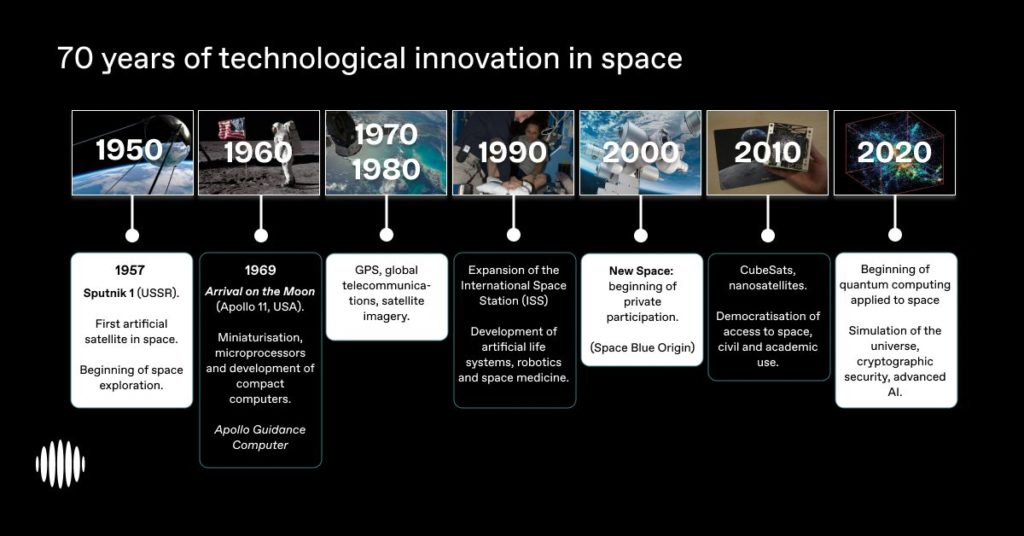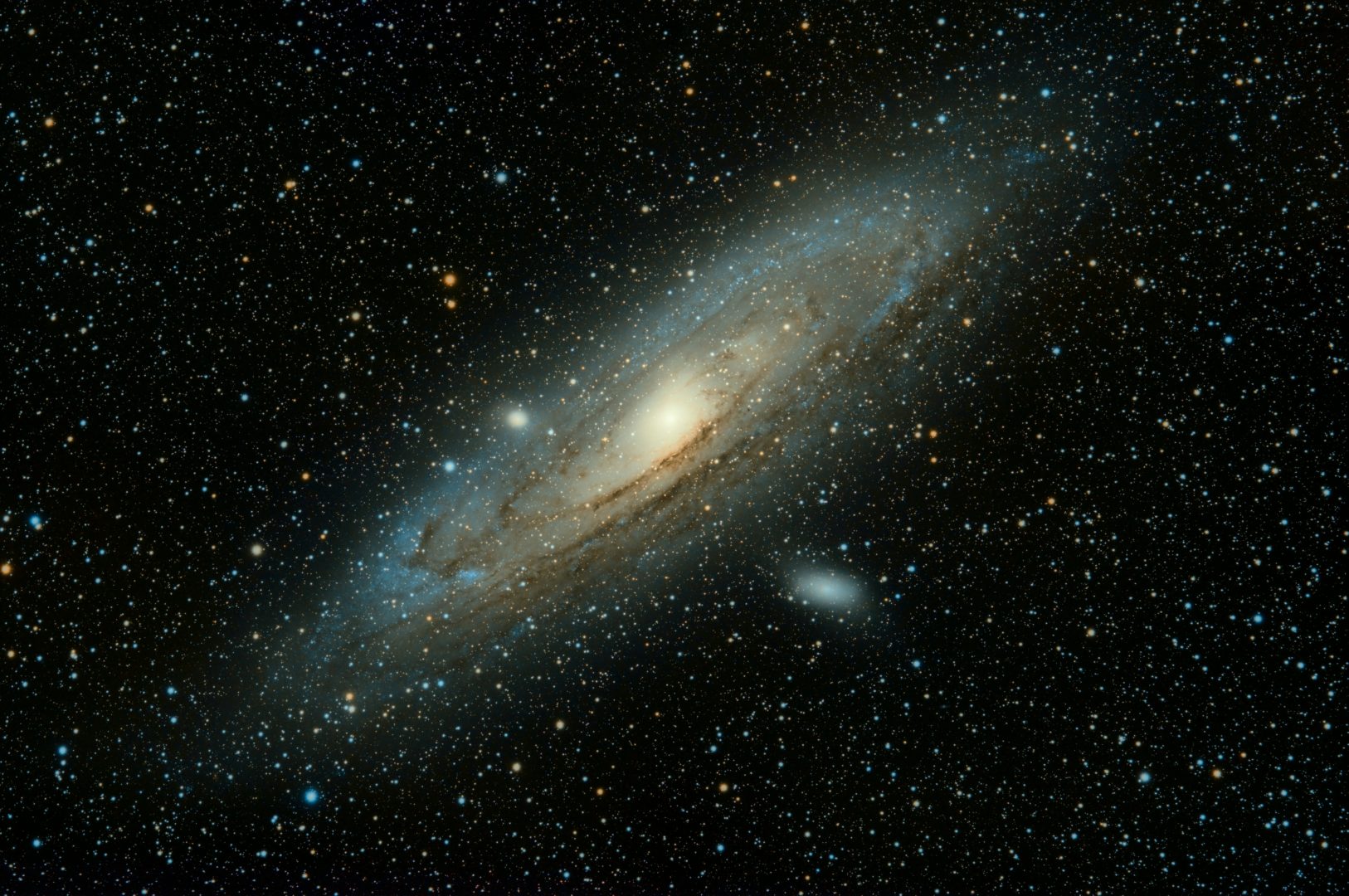Space exploration is no longer science fiction. From the launch of the first satellite in 1957 to today’s race to dominate New Space, the aerospace industry is evolving rapidly and has become essential for global innovation and technological development. This article outlines the main trends, opportunities, and emerging professional profiles according to the Talent Arena 2025 speakers, organised by Mobile World Capital Barcelona.
The Space Industry Drives Technological Innovation
“Space technology is about making the seemingly impossible a reality,” said Pedro Duque, aeronautical engineer and astronaut. The need to develop smaller, faster, and more efficient devices for space missions has accelerated progress across many technological fields.
The space industry has played a crucial role in developing cutting-edge technologies that are now part of our daily lives: telecommunications, navigation systems (GPS), weather forecasting, Earth observation, and technologies applied to agriculture and sustainability.
A historical case is the Apollo Guidance Computer, the first digital computer used on a spacecraft. It sparked the miniaturisation of electronic systems, paving the way for personal computers and today’s smart devices.
This progress is linked to current areas such as quantum computing, which, according to experts like Marta Pascual, Sergio Gago, and Assim Hussain, is key to both digital security and the simulation of the universe. Some recent hypotheses propose that the universe might function as a quantum computer, with information forming a fundamental part of physical reality—a theory highlighted by Charles Q. Choi in his article Quantum Computer Could Simulate Beginnings of the Universe.

From NASA to Startups: A Diversifying Sector
“The space industry is no longer just about governments. Now there’s capital, speed, and risk.”
— Lauren Lyons, former engineer at SpaceX and current COO of Firefly Aerospace.
The space industry has diversified and accelerated thanks to the emergence of new players. Lauren Lyons divides the sector into three major categories:
- Established corporations (NASA, Airbus, Boeing).
- New Space companies: SpaceX, Blue Origin, and Starlink – focused on commercialisation and cost reduction.
- Emerging startups: more agile, innovative, and with novel business models in areas such as nanosatellite launches, Earth observation, or global connectivity.
This shift is transforming the traditional model, opening the door to new investors, tech hubs, and public-private synergies.
New Professional Profiles: Beyond Astronauts
With the proliferation of space projects and emerging companies, the demand for talent has grown exponentially. It’s no longer just about aerospace engineers, but about highly specialised and cross-functional profiles.
Key fields with growing demand:
- Engineering and technical: electronics, telecommunications, programming, and advanced materials.
- Science and research: physics, astrophysics, geography, and climatology.
- Digital technology: data analytics, simulation, and AI applied to space.
- Management and regulation: space project management, space legaltech, and safety regulations.
This environment creates opportunities in related sectors such as artificial intelligence, big data, geospatial technologies, and cybersecurity—essential for sustainability and the development of satellite-based services.
Catalonia and New Space: A Region with Potential
In Catalonia, the growth of companies linked to New Space is driving job creation and high-value technological projects. Experts emphasise the need to align talent, innovation, and market forces to consolidate a competitive and accessible ecosystem.
Stay up to date about everything
Subscribe to stay up to date with the latest content from Mobile World Capital Barcelona.
